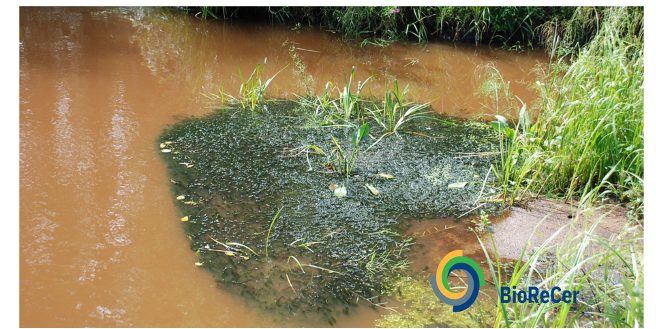Certification schemes provide consumers with assurance and confidence in the sustainability, quality, and authenticity of bio-based products. By displaying certification labels or marks, products communicate that they have met specific standards and undergone rigorous evaluation processes. This instills trust in consumers, helping them make informed choices and have confidence that the products align with their values and expectations.

BIORECER Project
The BioReCer Project is funded by the EU Framework Programme Horizon Europe, under grant agreement no. 101060684, aims to adapt the certification schemes for bio-based products to boost market confidence and use by the bio-based industries.
This effort is key in several ways:
- Standardization: Adapting certification schemes helps establish standardized criteria and guidelines for evaluating the sustainability and quality of bio-based products. This ensures consistency and comparability across different products, markets, and regions. Standardization enables stakeholders to make informed decisions based on reliable and consistent information, promoting trust, and facilitating trade.
- Relevance: Certification schemes need to evolve and adapt to technological developments, scientific knowledge, and environmental regulations. Adapting the schemes ensures that they remain relevant and up-to-date, incorporating the latest understanding of sustainability principles and best practices. This allows certification to address emerging challenges and promote continuous improvement in bio-based industries.
- Market Acceptance: Adapting certification schemes increases their market acceptance and recognition. When certification schemes align with the evolving needs and expectations of consumers, businesses, and regulators, they become more widely adopted. This leads to increased confidence in certified products, broader market access, and enhanced competitiveness for bio-based industries. Certification schemes can help drive the market demand for sustainable bio-based products. As consumers increasingly seek certified products, businesses are incentivized to obtain certification to access broader consumer markets. This, in turn, encourages more companies to adopt sustainable practices, leading to a wider availability of certified bio-based products for consumers to choose from.
- Traceability and Transparency: Adapting certification schemes enhances traceability and transparency throughout the supply chain. It enables the inclusion of key information, such as the origin of biomasses and biowastes, production processes, and environmental impacts, in the certification process. Improved traceability and transparency facilitate accountability, ensure ethical sourcing, and enable stakeholders to make informed decisions about the sustainability credentials of bio-based products. Certification schemes offer consumers access to transparent and trustworthy information about the origin, production methods, and environmental impacts of bio-based products. This enables consumers to understand the environmental and social implications of their purchasing decisions, allowing them to support products that align with their sustainability goals. Certification schemes provide clarity and help consumers differentiate between genuinely sustainable products and those making unsubstantiated claims.
- Continuous Improvement: Adapting certification schemes allows for continuous improvement in the evaluation and certification processes. By incorporating feedback from stakeholders, scientific advancements, and lessons learned from practical implementation, certification schemes can evolve to become more effective, robust, and aligned with the needs of the industry and society. Continuous improvement ensures that certification remains a relevant and trusted tool for promoting sustainable bio-based value chains.
- Health and Safety: Some certification schemes focus on ensuring the health and safety aspects of bio-based products. For example, certifications for organic products verify that the products are free from harmful chemicals and have been produced using environmentally friendly practices. By choosing certified bio-based products, consumers can prioritize their health and well-being, knowing that the products meet stringent safety standards.
- Ethical and Social Considerations: Certification schemes may include criteria related to ethical and social responsibility. They can address aspects such as fair trade, labor rights, and community engagement. By selecting products with relevant certifications, consumers can support companies that uphold ethical practices and contribute positively to the welfare of workers and local communities.
- Making Informed Choices: Certification schemes empower consumers to make informed choices aligned with their values and sustainability preferences. By providing standardized and comparable information, certifications enable consumers to evaluate the environmental impact, resource efficiency, and overall sustainability performance of bio-based products. This allows consumers to support companies that prioritize sustainability, incentivizing the industry to adopt more environmentally friendly practices.
- International Cooperation: Adapting certification schemes encourages international cooperation and harmonization. As bio-based industries operate globally, having compatible certification schemes across different regions facilitates trade, reduces barriers, and promotes collaboration. Harmonized certification schemes enable the exchange of knowledge, best practices, and resources, supporting the growth and development of bio-based industries on a global scale.

In short, adapting certification schemes is essential to ensure their relevance, effectiveness, and market acceptance. By aligning certification with evolving needs, promoting traceability and transparency, and fostering international cooperation, adapted certification schemes support the growth of sustainable and responsible bio-based industries.
More information about the project and how to participate can be found at www.biorecer.eu
About the BioReCer project
The BioReCer project receives funding from the Horizon Europe framework programme under the grant agreement number 101060684. Views and opinions expressed are however those of the author(s) only and do not necessarily reflect those of the European Union. Neither the European Union nor the granting authority can be held responsible for them.
Source
Supplier
European Commission
European Union
Horizon 2020
Share
Renewable Carbon News – Daily Newsletter
Subscribe to our daily email newsletter – the world's leading newsletter on renewable materials and chemicals









